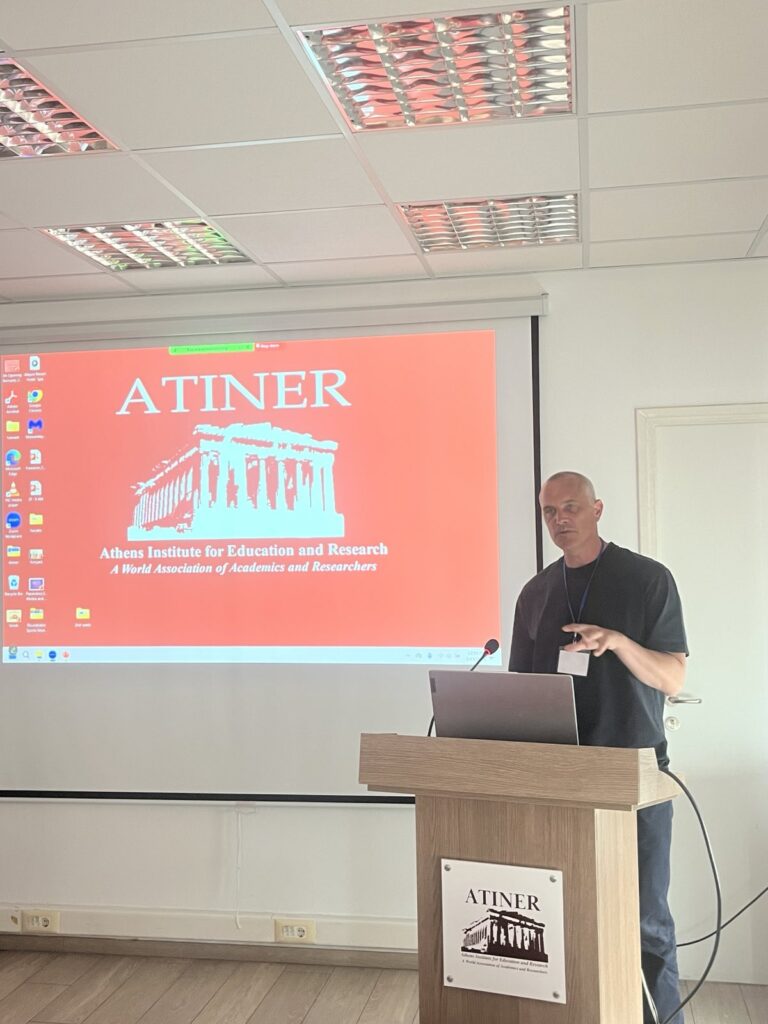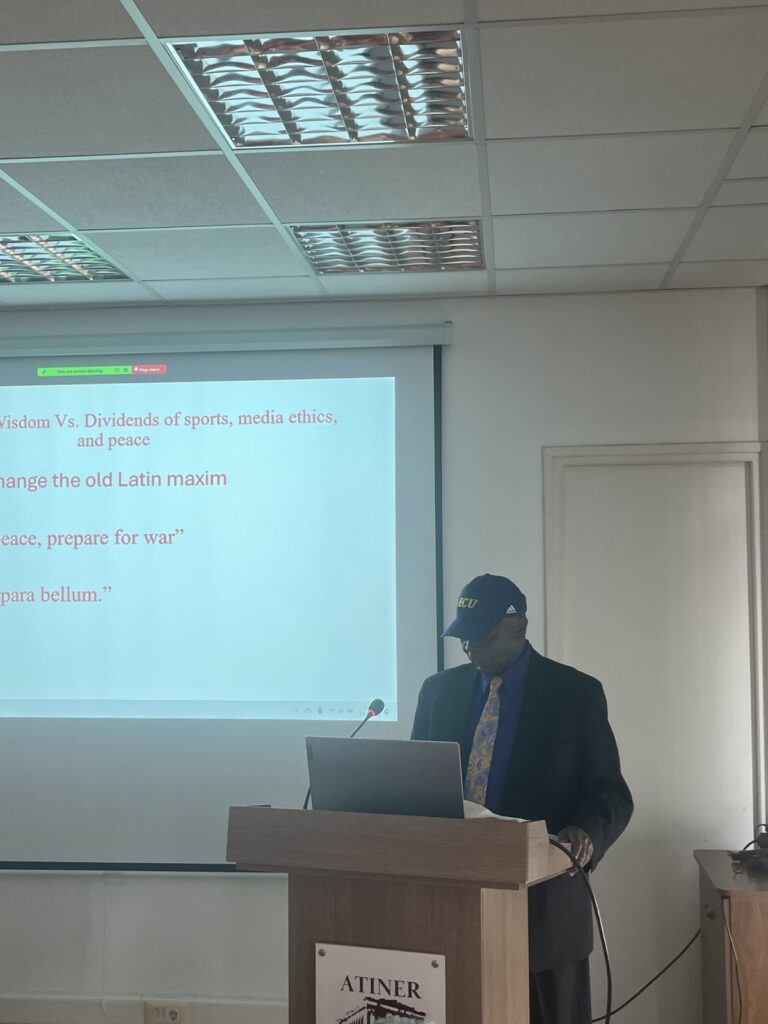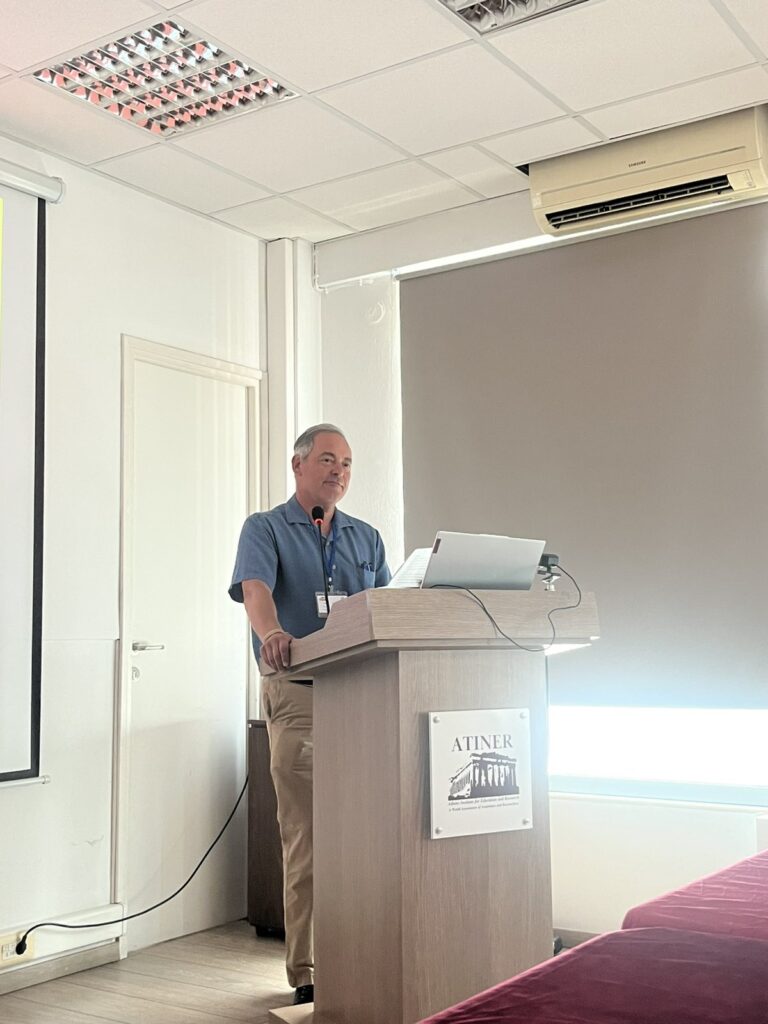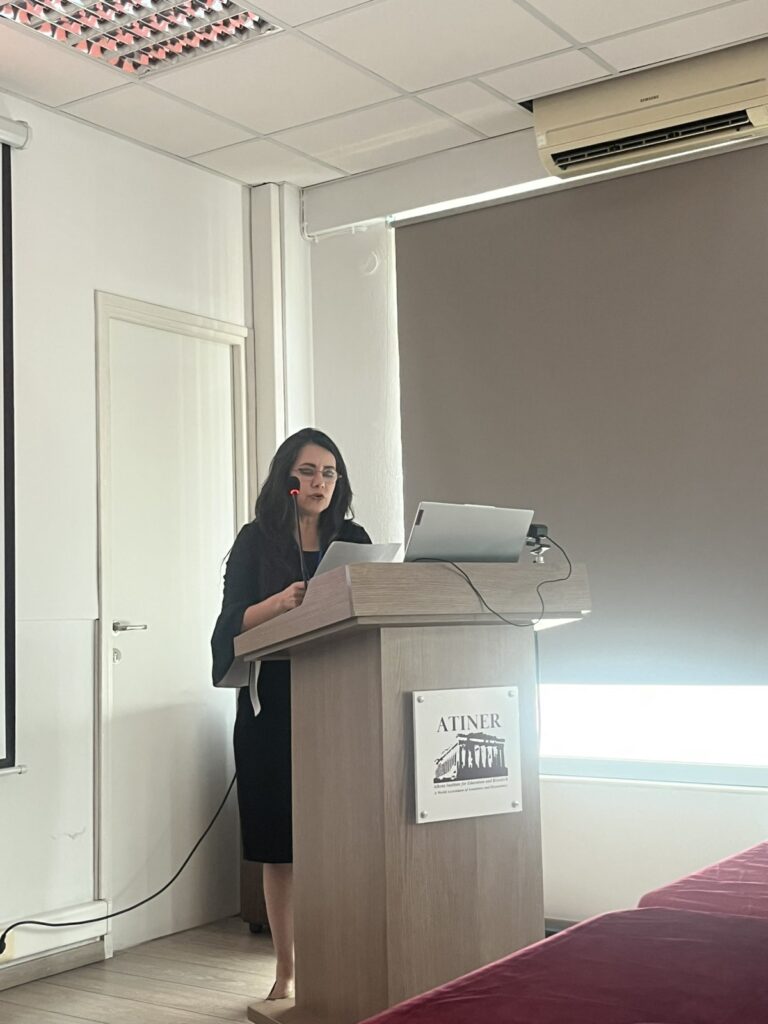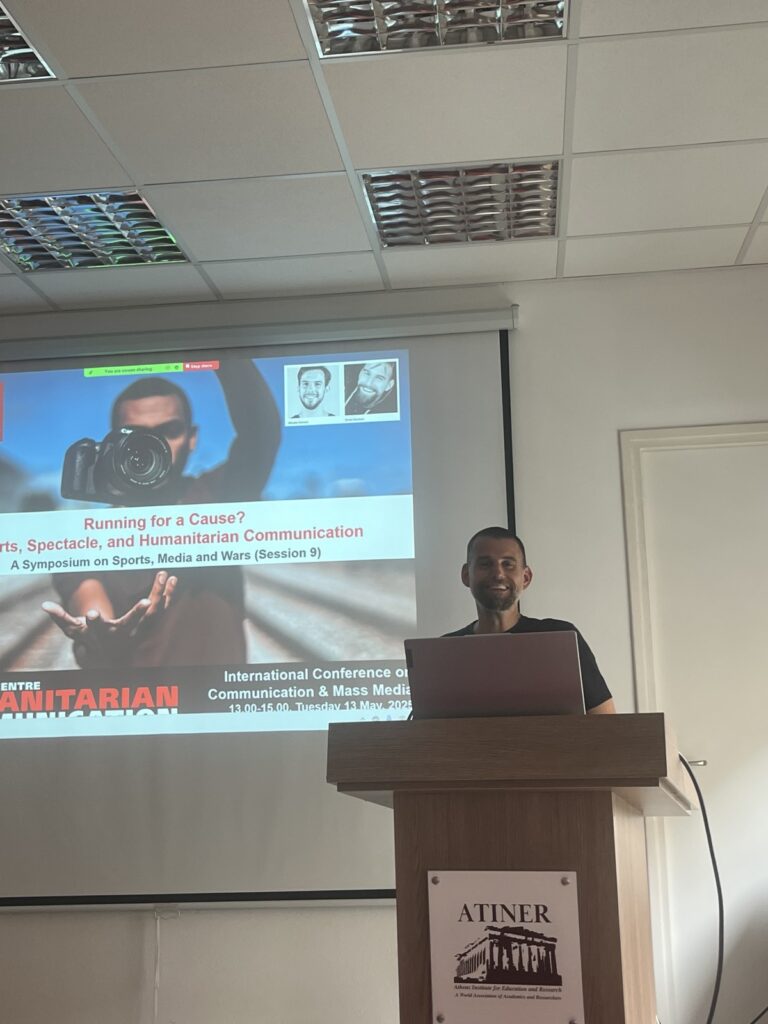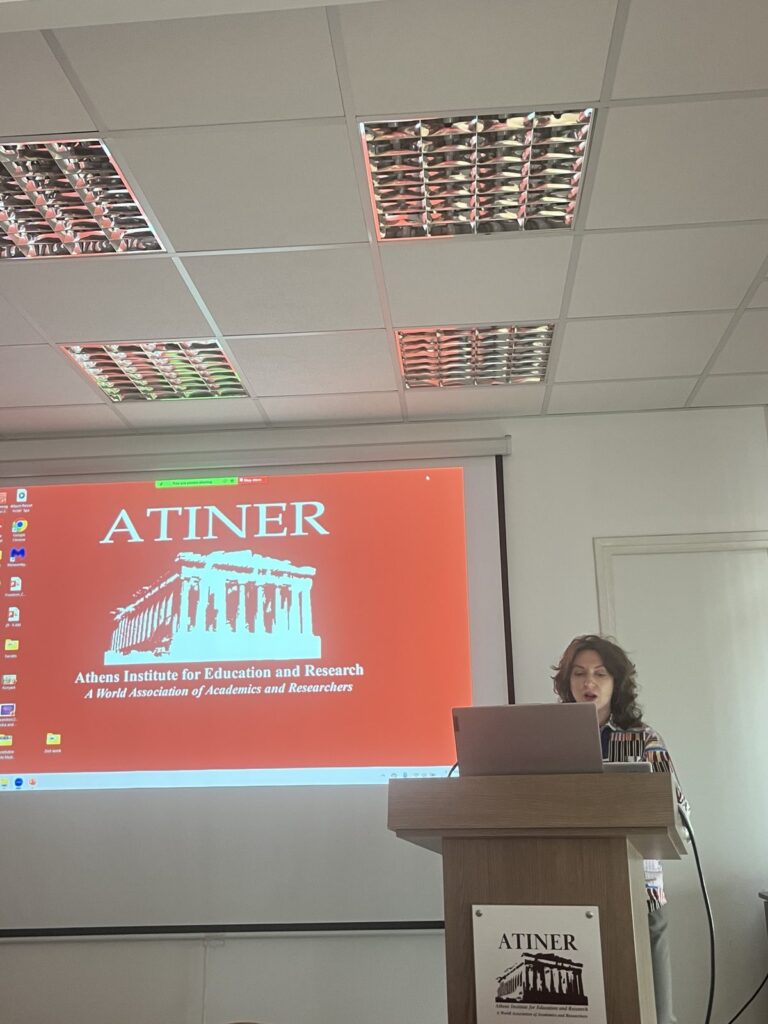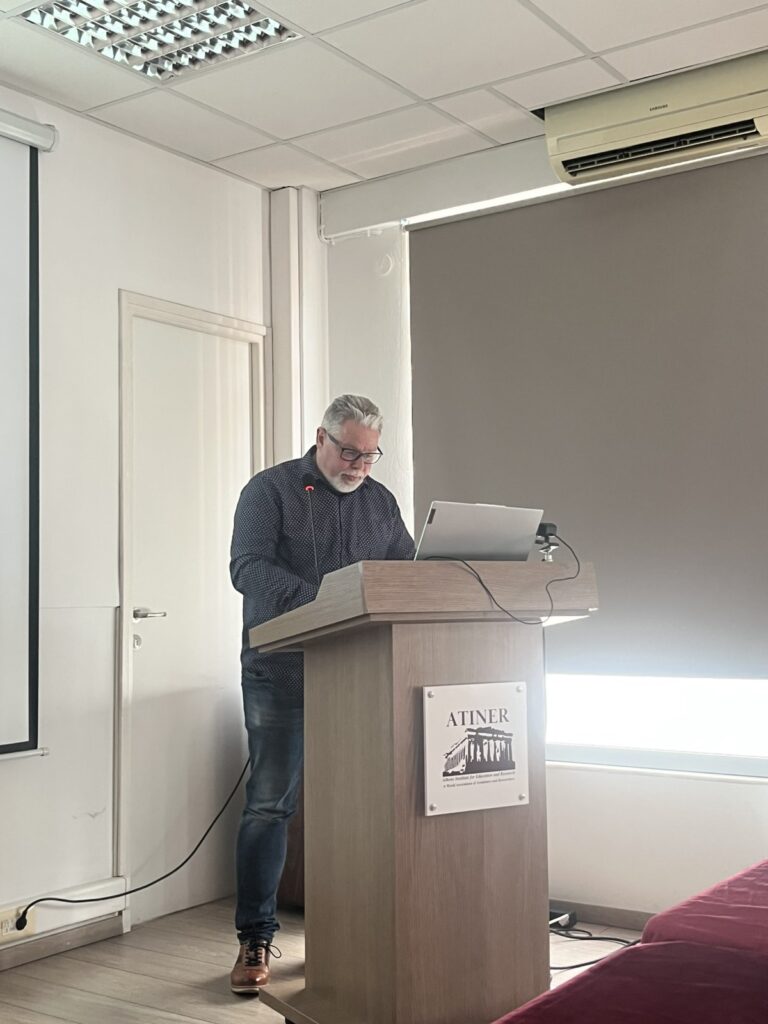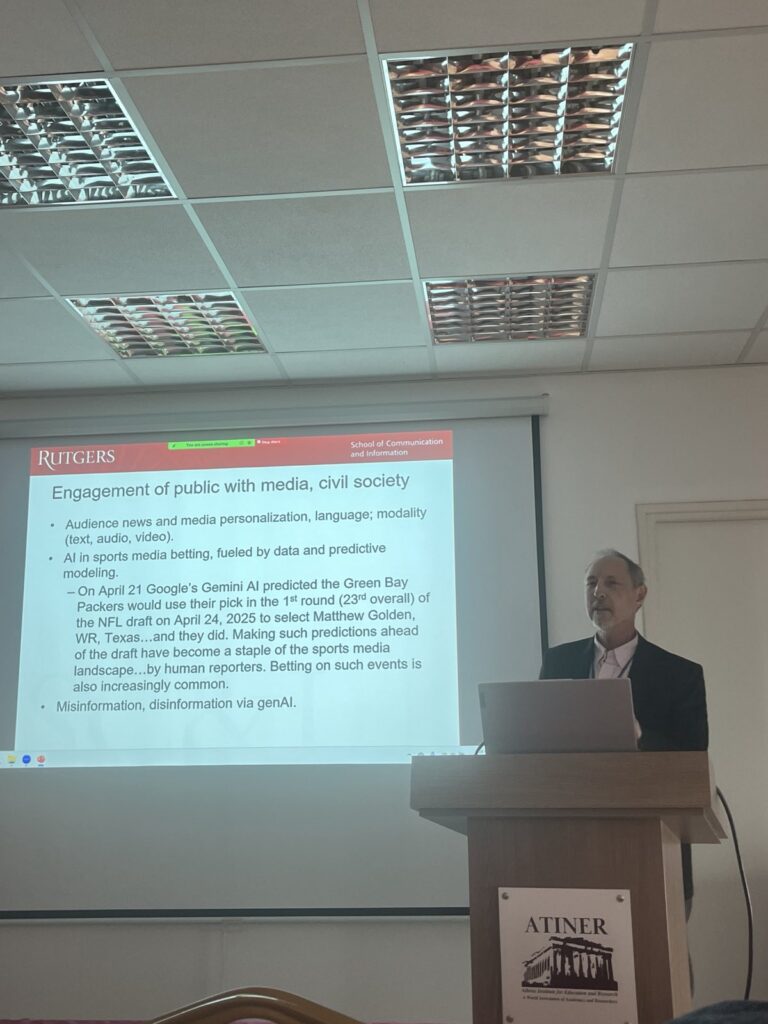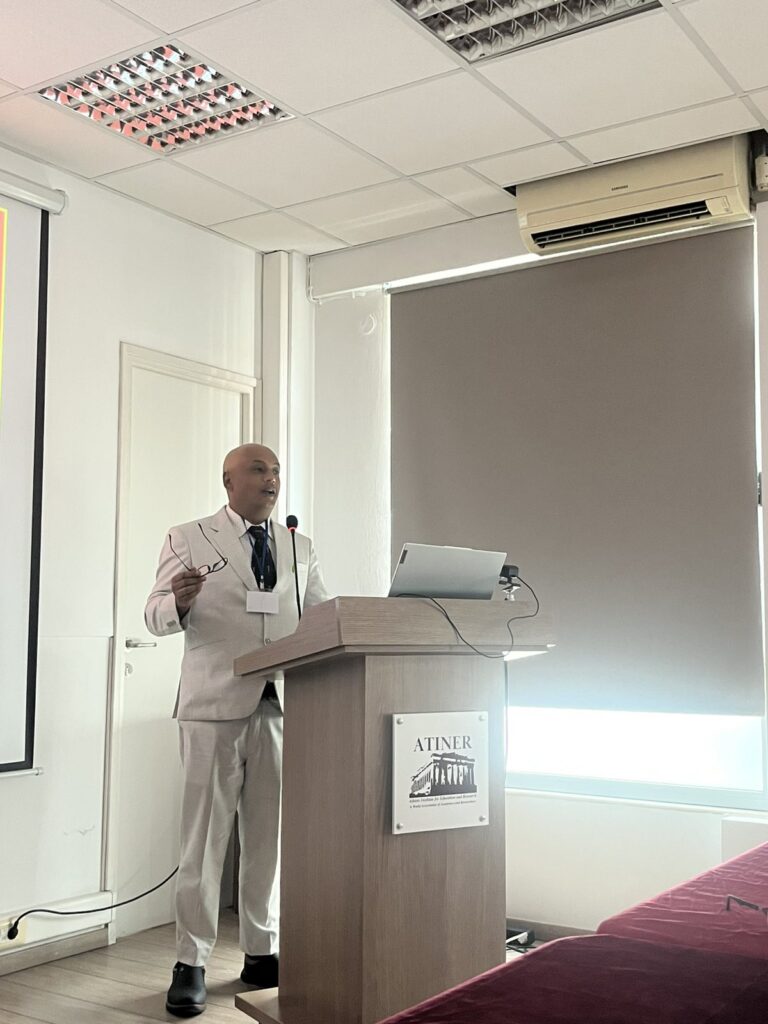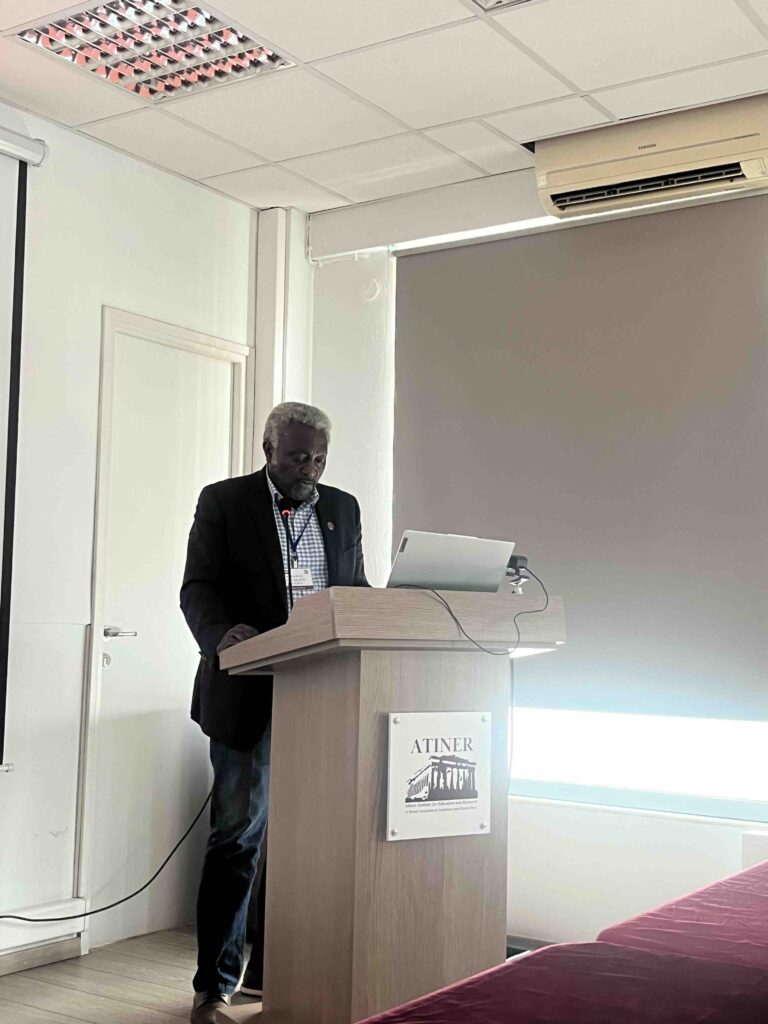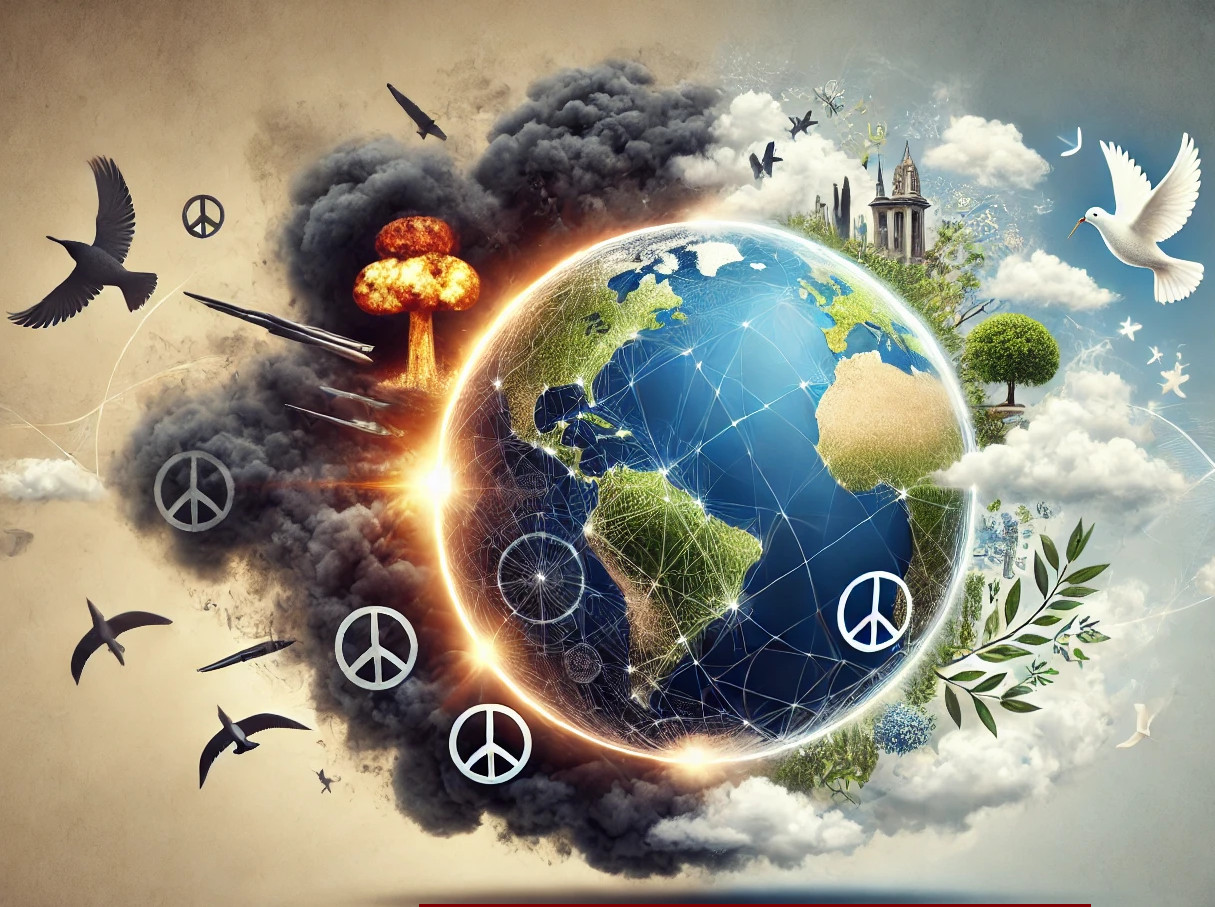Athens Institute
A World Association of Academics and Researchers: Promoting Global Education & Research
1995-2025: 30 Years of Bringing Academics and Scholars together in Athens
Symposium on Sports, Media and Wars
Monday 12 & Tuesday 13 May 2025, at the Athens Institute’s Downtown Office
The Athens Institute hosted a symposium on Sports, Media, and Wars, organized into two academic sessions as part of the 25th Annual International Conference on Sports: Economic, Management, Marketing & Social Aspects & the 23rd Annual International Conference on Communication and Mass Media, exploring the complex interplay between sports, media, and conflict.
The first event was held on Monday, 12 May 2025, from 14:30 to 16:30, at the Institute’s Downtown Office (5th Floor, 9 Chalkokondili Street, Athens). Moderated by Professor John V. Pavlik from Rutgers University, the session featured a series of insightful presentations. Professor Chris C. Ulasi from Texas Southern University examined the unifying and divisive roles of media narratives in
sports during times of conflict. Professor Barun Roy, from the University of North Bengal, analyzed media discourses and intertextuality in cricket within the context of identity politics and war in South Asia. Professor Laura Trujillo-Linan of Panamerican University discussed media ecologies in the framing of war and sport as instruments of power. Associate Professor Lars Konzack of the University of Copenhagen presented on the use of sports in propaganda, while Professor Ted Geltner of Valdosta State University explored the literary dimensions of sports. The session concluded with a presentation by Gregory T. Papanikos, President of the Athens Institute, titled Olympic Games: Battlefields of “War” Without Graves, reflecting on the symbolic militarization of athletic competition.
The second session took place on Tuesday, 13 May 2025, from 13:00 to 15:00. Moderated by Dr. Gregory T. Papanikos, this event continued the discussion with a global perspective on media ethics, public broadcasting, and wartime communication. Christoph Bertling from the German Sport University Cologne highlighted the critical role and struggles of public broadcasters in reporting on both sports and war. Professor Eribo Festus from East Carolina University addressed the contrast between media-driven conflict and the potential of ethical journalism to foster peace. Assistant Professor Emiel Martens of the University of Amsterdam presented on the intersection of sports, spectacle, and humanitarian messaging. Professor John V. Pavlik returned with a forward-looking talk on the implications of artificial intelligence in media, and Professor Adriana Mutu from ESIC Business & Marketing School discussed how wartime media shapes and challenges national identity. Together, these two sessions offered a rich and interdisciplinary examination of the ways in which sports and media intersect with broader societal and political dynamics in times of peace and conflict.
